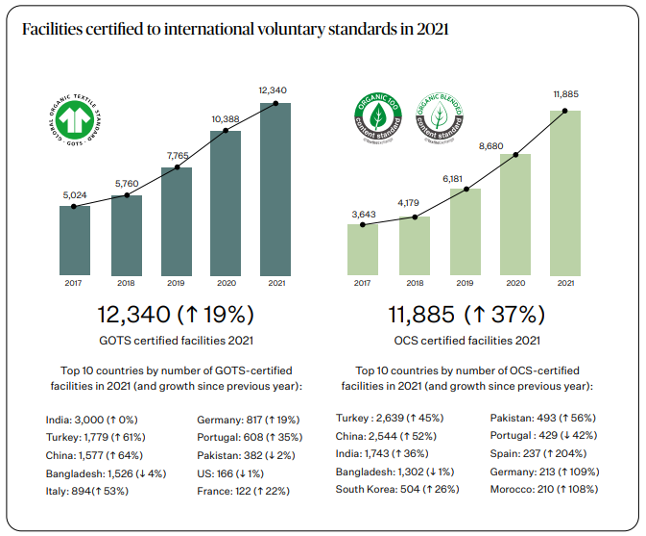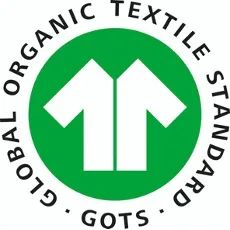With the development of the textile industry, consumers have increasingly high requirements for textile products. While satisfying consumption, more people want to know whether the production and manufacturing processes of these consumer goods are green and sustainable. Therefore, the related authentication services also show a significant growth trend. For enterprises, understanding textile certification can help them understand the market situation and the development trend of the textile industry, so as to better meet the needs of consumers, better formulate textile quality control strategies, and improve the quality of textiles.sustainable development It refers to all activities carried out by human society, which should ensure that resources are not exhausted.Sustainable Textile Certification:The concept of sustainable development in the textile industry has risen from self-conscious constraints to global environmental protection constraints at the legal level. The ultimate goal of organic and recyclable textile certification is to help the sustainable development of the textile industry through the supervision of the entire supply chain.
According to GOTS annual report statistics,The number of certified enterprises is increasing year by year. In recent years, with the development of sustainable concepts and the enhancement of environmental awareness, the demand for textile certification has shown a more obvious growth trend. In 2021, China increased the number of certified organic textiles by 50-60%.
(The above image is from GOTS_Annual_Report_2021_WEB.pdf (global-standard.org))The driving force for enterprises to apply for certificationAccording to the enterprise survey in the 2021 annual report of GOTS,More and more enterprises apply for sustainable textile certification to:Meet market requirements and increase enterprise competitiveness
Increase the number of customers and improve profitability
Enhance market recognition and establish brand effect
Undertake certain social responsibilities and contribute to the concept of sustainable development
 |  |
| In 2021, 62% of enterprises participated in certification for the first time | 76% of enterprises apply for GOTS certificates due to the principle of sustainability |
 |  |
| 97% of companies declare that GOTS has expanded their business scope | 75% of enterprises declare that GOTS certification does bring more benefits to enterprises |
Recyclable and organic textile certification
It aims to help the sustainable development of the textile industry through the supervision of the entire supply chain. There are two certifications for recyclable and organic certification.

Organic Content Certification (OCS): Apply to all non food products containing 5% - 100% organic ingredients; The content of organic raw materials in the final product can be confirmed.
Global Organic Textile Certification (GOTS): Applicable to all textiles made from at least 70% certified organic natural fibers. This standard ensures the requirements for the organic state of textiles, including the production management of raw materials, environmental protection, and social responsibility, to ensure effective understanding of product organic information by consumers.

Recycling Statement Certification (RCS): Applicable to products with recycled raw material content between 5% and 100%. This is a chain of custody standard used to track recycled raw materials through the supply chain. This standard only certifies recycled ingredients (recycled material requirements), and has no requirements for environmental and social responsibility.
Global Recycling Certification (GRS): Applicable to products with a recycling ratio between 20% and 100%. This standard is used to track and verify the content of recycled materials in the final product. It applies to the entire supply chain and involves traceability, environmental principles, social requirements, chemical composition, and labeling.
According to GOTS 2021 annual report, 12338 enterprises have applied for GOTS certification (an increase of 19% compared to 2020), with China, India, and Turkey accounting for half of the GOTS certification market. 18 certification agencies worldwide have GOTS qualifications.According to Textile Exchange According to the data released on the website, as of February 17, 2023, 24 certification agencies have TE certification qualifications such as RCS/OCS/GRS. The number of valid certificates for RCS, OCS, and GRS held by Chinese enterprises is as follows:


"The former Vice President of China Chemical Fiber Association pointed out in his speech at the conference," It can be seen that the national policy guidance is very clear, green development is a long-term direction, and the certification system will be an important safeguard measure. "“H&M promotes and promises that their products are already made from 30% recycled materials and will achieve 100% recycled or sustainable sources by 2025.”“Puma Puma has been increasing the proportion of sustainable raw materials used to manufacture products. This includes a commitment to purchase 100% organic cotton, polyester, leather, down and cardboard from more sustainable sources. And increase the proportion of recycled polyester used in clothing and accessories to 75%.”“Inditex Group has achieved 100% organic cotton production in 2023, and is expected to achieve all recycled polyester production in 2025.”“From the perspective of the raw material market, global organic fiber production has been increasing year by year since 2016, and more and more ordinary cotton is in the process of transformation. Compared to 2020, China's organic cotton production has increased by 10%. Recycled fibers account for 10% of global fiber production, and there is significant room for growth. In 2023 alone, there were over 4000 articles on recycling textile fibers. Research on recycled materials is also developing rapidly, which will promote the utilization and recovery rate of recycled materials, thereby increasing the amount of recycled materials available. With the increase in the number of textile raw materials and recycled fibers, it is expected that the demand for sustainable textile certification will continue to increase significantly in the future.”
From the perspective of the needs of brand merchants and social development, it is indicated that brands require suppliers to possess multiple sustainable textile certification certificates, and government departments and enterprise associations are also managing and promoting the concept of green environmental protection. Therefore, sustainable textile certification will become an important safeguard measure for the green development of the textile industry.
For more certification information, please contact Kaixin Sustainable Textile Business Unit:
email : Info-tex@kcb-china.com

 原创先锋
原创先锋